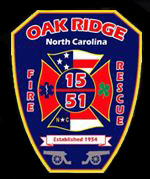Fire safety: Winter safety tips
In the winter season, consumers are reminded to follow safety precautions when purchasing and using electric or fuel-fired heaters and fireplaces.
Heaters can cause fires if they are placed too close to flammable materials such as drapes, furniture, or bedding. Fireplaces can cause fires if the chimney is cracked, blocked, or coated with creosote, or if sparks and embers can reach flammable materials.
Fuel-burning appliances can cause carbon monoxide poisoning if there is improper venting or incomplete combustion.
Exercise care when using heaters and fireplaces, and remember that every home needs working smoke alarms and a carbon monoxide alarm.
Space heater safety tips
- Choose a heater that has been tested to the latest safety standards and certified by a nationally recognized testing laboratory. These heaters will have the most up-to-date safety features, while older space heaters may not meet the newer safety standards.The U.S. Consumer Product Safety Commission (CPSC) has worked to upgrade industry standards for electric, kerosene, and vented and unvented gas space heaters. An automatic cut-off device is now required to turn off electric or kerosene heaters if they tip over. More guarding around the heating coils of electric heaters and the burner of kerosene heaters also is required to prevent fires.
- Place the heater on a level, hard and nonflammable surface, not on rugs or carpets or near bedding or drapes. Keep the heater at least three feet from bedding, drapes, furniture, or other flammable materials.
- Keep doors open to the rest of the house if you are using an unvented fuel-burning space heater. This helps prevent pollutant build-up and promotes proper combustion. Follow the manufacturer’s instructions to provide sufficient combustion air to prevent carbon monoxide production.
- Never leave a space heater on when you go to sleep. Never place a space heater close to any sleeping person.
- Turn the space heater off if you leave the area. Keep children and pets away from space heaters.
- Do not use a kitchen range or oven to heat your house because it could overheat or generate carbon monoxide.
- Have a smoke alarm with fresh batteries on each level of the house and inside every bedroom. In addition, have a carbon monoxide alarm outside the bedrooms in each separate sleeping area.
- Be aware that mobile homes require specially designed heating equipment. Only electric or vented fuel-fired equipment should be used.
- Have gas and kerosene space heaters inspected annually to ensure proper operation.
Fireplace safety tips
- Have flues and chimneys inspected before each heating season for leakage and blockage by creosote or debris.
- Open the fireplace damper before lighting the fire and keep it open until the ashes are cool. This will avert the building up of poisonous gases, especially while the family is sleeping.
- Never use gasoline, charcoal lighter or other fuel to light or relight a fire because the vapors can explode. Never keep flammable fuels or materials near a fire.
- Keep a screen or glass enclosure around a fireplace to prevent sparks or embers from igniting flammable materials.
